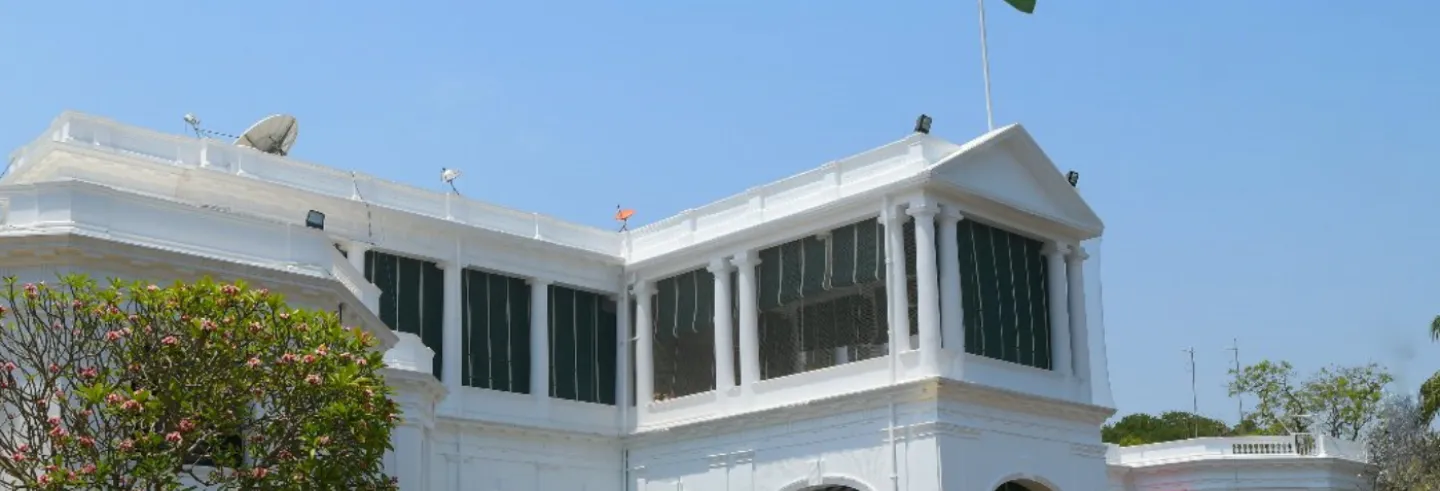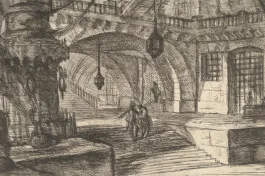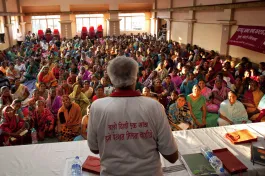One of India’s foremost constitutional and parliamentary procedure experts, P.D.T. Achary, expresses his thoughts on the general state of federalism in India in a 4-part interview that was published in The Leaflet.
The excerpts published here focus on federalism as in the Constitution, the powers of governors to withhold Bills passed by the state assembly and, in the light of the Article 370 judgement, on the powers of Parliament to change the status of a state into a union territory.
Aakritee Raj: At the outset, let me ask you, what have the main takeaways for you on the general state of affairs vis-à-vis federalism in India at the end of 2023? This wall of federalism has fewer bricks in it at the end of 2023 than it did at the beginning of the year.
P.D.T. Achary: Well, Dr B.R. Ambedkar has said that our Constitution is federal when there is normalcy everywhere, but it is unitary in times of emergency. It is an apt description of Indian federalism.
India is a federal country, as everyone knows. But it is not a federal country like the United States. We are a federal country because of the division of legislative power between the Union and the States. That is the main feature of Indian federalism. Otherwise, Indian federalism, of course, has been described as federalism with strong unitary features.
The point is that India does not fit into the mould of classical federalism. We have very strong unitary features, and that is understandable because when the country became independent, there was a lot of bloodshed because of the Partition and there was instability and a very uncertain future was staring us in the face. So naturally, the framers of the Constitution had the unity of the country in mind. Unity had precedence over everything else. The country had to remain united at all costs. Which is why they crafted the kind of federalism which we have. It was thought that federalism was the most suited form for this country because of the diversity that exists, but at the same time the framers felt that we must have a strong Centre. Only a strong Centre could hold the country together.
[T]he Union government issuing directions to the state to act in a particular manner goes against the essence of federalism.
As you know, in classical federalism, state units are more important. They come together and they arrive at an agreement. The federal government is created by the states. But here, it is just the other way around. The Central authorities created these states— the federal units.
In a classical federal system, the residuary powers are vested in the states. Here, it is the other way around. They are vested in the Union. That is why, as Ambedkar said that in times of emergency the State acquires a unitary character.
There are many Articles in the Constitution through which the Union government can control the states, even in normal times. For example, Article 3: Parliament has been given enormous powers to redraw the boundaries of a state, amalgamate two states or two or three states, create new states and Union territories, and change the name of a state.
All such changes can be brought about through a law by Parliament. Doing all this is only possible in a unitary state, it cannot happen in a federal State.
Then there is Article 254. If there is a clash between a Union law and a state law on a Concurrent subject, the Union law will prevail. Parliament has also been given the power to repeal a state law under the Concurrent subjects. Then you come to Articles 256 and 257. Article 256 says that the Executive power of the state shall be used so that Union laws are implemented in full. The government can issue directions to states for this purpose. So, the Union government issuing directions to the state to act in a particular manner goes against the essence of federalism. The Union can issue directions to states on how to exercise their Executive power so as not to impede the exercise of the Executive power of the Union.
These are some of the provisions which can be used in normal times, not in an Emergency.
In an Emergency, Parliament has the power to legislate on any subject, a state subject or a Union subject. The president may also impose an Emergency, a financial Emergency, drastically curtailing the powers of the state in the matter of finance, financial management of the state and so on.
In reference to the power of the Union to issue directions under Articles 256 and 257, if a state government refuses such directions, the President can conclude that a situation has arisen where the government of the state cannot be carried on in accordance with the provisions of the Constitution. Then Article 356 comes into operation.

Aakritee Raj: A recent piece of yours in The Hindu sheds light on a trend of concern — on governors routinely delaying action on Bills passed by state legislatures. This practice fundamentally undermines the legislative powers of states and weakens the machinery as a whole. Recently, the Supreme Court came down strongly upon the practice and said that a governor has to either pass the Bill or send it back. What is your take on the issue?
P.D.T. Achary: Article 200 of the Constitution of India makes it very clear that the governor has certain options. The point to note is that when the Constitution provides various options to the governor, they are obligated to choose one and only one of those options.
Now, what are these options?
One option is to give assent. The second is to not give assent or withhold it. The third is to send the Bill back to the assembly for reconsideration, in which case the governor has to give assent. The fourth is sending it to the President.
Despite the Supreme Court consolidating it into three options, I believe there are four. The governor can choose any one of these options. However, withholding assent is not an option. It is not an option anywhere in the world where the parliamentary system is in place. The power to withhold assent rests only with the sovereign.
The sovereign cannot withhold assent without being advised by the council of ministers. This is the law. Consequently, the council of ministers will then advise the governor to withhold assent, closing the matter as the government no longer wishes to proceed with the law. This is the sole situation where such an action can occur.
The second option is sending the Bill back to the assembly, which is the fairest and most reasonable choice. If the governor has reservations about a specific provision or the entire Bill, they can send a message expressing these concerns and requesting a reconsideration. The governor can even suggest amendments.
When this message reaches the assembly, they will promptly convene to review the governor’s suggestions. If the assembly passes the Bill in its original form, despite the governor’s reservations, the governor must give assent. This is a constitutional requirement, meaning the governor cannot withhold assent.
This has been reaffirmed by the Supreme Court in the Punjab judgment. The Supreme Court has done a brilliant job, clarifying that if the governor refuses assent, they must send it to the assembly.
This effectively eliminates the option of withholding assent. Now, the remaining option, sending it to the President, has become a tricky issue.
In Kerala, for example, the governor has retained about eight Bills for over two years. However, when this matter reached the Supreme Court, the governor promptly granted assent to one Bill while forwarding the other seven to the president. This raises serious questions about the types of Bills that can be referred to the President. The Constitution explicitly mentions only one type of Bill that should be sent to the President— specifically, a Bill that alters or encroaches upon the powers of the high court, taking away or eroding certain powers.
[G]overnors should refrain from getting involved in politics. However, at times, they seem to function more as representatives of the Union government…
Although the Constitution does not specify other types of Bills, there are two indirect references.
First, Article 213 states that if a Bill contains provisions similar to an ordinance, the governor, at their discretion, may send it to the President for approval. Ordinances can generally be issued by the governor, but certain ones require presidential clearance. Therefore, if the governor believes a Bill contradicts an Ordinance, they can send it to the President. The second reference is under Article 254, which stipulates that if there is a conflict, the Union law prevails. However, even in the presence of a conflict, if the state law has been reserved for the President’s consideration and the President grants assent, then the state law will prevail.
Based on these provisions, my conclusion is that the governor can send Bills that pertain to a concurrent list subject, but only in cases of repugnancy with an Ordinance.
However, the governor cannot send Bills on a state subject, as it would amount to an encroachment on federalism. This would involve bringing the President into state affairs, which goes against the constitutional division of legislative power in the concurrent list. When there is a dispute, the President can naturally examine and consider it.
Therefore, my deduction is that the governor cannot send a Bill on a state matter to the President. The governor can only send Bills on concurrent subjects, and even then, only in cases of repugnancy or if the Bill affects certain provisions of the high court.
Aakritee Raj: After observing the affairs in Kerala and Punjab, what do you think the future would look like? How does one curb this tendency?
P.D.T. Achary: Once the Bill is sent to the President, it is the Union government that decides whether the President should assent to it or not. It is not the President who decides; it is the Union government that advises the President. Typically, these decisions are not publicly disclosed by the Rashtrapati Bhavan, leaving the fate of these Bills unknown.
There is an uncertainty surrounding this process. I am not saying that they will never approve a Bill, but I am emphasising the uncertainty surrounding the entire matter.
Aakritee Raj: Satya Pal Malik, the former governor of Jammu and Kashmir, dissolved the assembly before the incumbent Chief Minister and leader of Jammu and Kashmir People’s Democratic Party, Mehbooba Mufti, could prove her majority. This is an instance where the governor acts over and above the powers vested with him. What are your thoughts on this?
P.D.T. Achary: Without specifically addressing Kashmir, I would like to point out that there have been instances where governors have exceeded their boundaries and taken actions that are unconstitutional in nature.
This has been observed in states such as Tamil Nadu, Kerala and Telangana. Such actions are not a valid exercise of a governor’s power. It is unfortunate, and governors should adhere to the Constitution because they are not politicians. They are constitutional authorities with a significant responsibility to ensure good governance in the states.
Governors have the right to caution and advise the government, expressing when they believe certain actions are incorrect. Elected officials are answerable to the people, not the governor. The governor is not personally held responsible for their actions.
Therefore, governors should refrain from getting involved in politics. However, at times, they seem to function more as representatives of the Union government, which may be led by one party, while the states are governed by another party. This leads to political rivalry.
Aakritee Raj: Since we are discussing Kashmir, I want to bring up Article. Jammu and Kashmir historically moved in the opposite direction of Delhi. Delhi seeks to lift itself from being a Union territory to a state, while Jammu and Kashmir have been brought down from a ‘super’ state to two paltry Union territories.
What are your thoughts on the implementation of the Jammu and Kashmir Reorganisation Act, 2019, in light of Article 3 of the Indian Constitution and its proviso?
P.D.T. Achary: I would like to say that Article 3 grants substantial powers to Parliament, allowing it to change state boundaries, change state names, alter state sizes (either decrease or increase them), and create new states and Union territories.
However, a crucial and unanswered question is whether Parliament possesses the authority to convert a state into a Union territory.
Sadly, the Supreme Court did not address this fundamental question in the specific case related to the conversion of Jammu and Kashmir into a Union territory. Despite its relevance, the court deferred the decision, awaiting a more suitable case in the future. This choice allows the government to repeat similar actions in different states, creating a big concern.
So long as the Constitution remains in operation, one cannot convert a whole state to a union territory, but you can create a union territory out of a state.
Upon examining Article 3, I find no explicit provision granting the Parliament the power to convert a state into a Union territory. Two primary reasons support this assertion.
Firstly, there is no clear mention of a state’s conversion into a union territory within the Article. The first part of the Article empowers the Parliament to form a new state, with an explanation including union territories in the definition of a state. The main aspect here is that the Parliament can create a new union territory by separating a portion of a state. If the intention was to convert an entire state into a Union territory, the Constitution would have explicitly stated so.
Therefore, my conclusion is that Article 3 does not provide for that. Article 3 does not confer this power on the Parliament to convert a state to the whole Union territory.
Aakritee Raj: So is the Supreme Court’s affirmation of Ladakh being made into a Union territory valid according to you?
P.D.T. Achary: It is valid. Parliament has the power to carve out a union territory from a state. However, it cannot convert an entire state to a Union territory.
The second point is if Parliament has the power to convert an entire state to a union territory, can it convert all states to Union territories? Doing so will go against Article 1, which says that India shall be a union of states, not a union of Union territories.
Therefore, India has to remain a union of states.
So long as the Constitution remains in operation, one cannot convert a whole state to a union territory, but you can create a union territory out of a state.
Aakritee Raj: So moving to Article 356, which states: “The President may declare that the powers of the legislature of the state shall be exercised by or under the authority of the Parliament.”
Now, petitioners in the Article 370 case had suggested that there is a difference between law-making and non-law-making powers of the state legislature, arguing that only legislative and not constituent power is transferred to the Parliament under the President’s rule, as Article 356 pertains to President’s rules.
The Chief Justice of India Dr D.Y. Chandrachud stated that there is no such distinction in Article 356. He further noted that interpreting the phrase “powers of the legislature to allow Parliament to exercise all constitutional powers of the legislative assembly” would limit the power of the state. However, he continued to state that the Constitution recognises such reduction of federal power when a proclamation under Article 356 is in effect.
What is the import of this statement?
P.D.T. Achary: If we examine Article 356 closely, the first clause specifies that the President can exercise the powers and functions of the government and the governor.
In the case of the state government, the governor holds the powers and functions of the government. As the governor is part of the government, these functions and powers are transferred to the President for exercise. However, when it comes to the legislature, the term “functions” is missing. The Article mentions only the powers of the legislature taken over by the President, not the functions.
The two primary powers of the legislature are law-making and passing the budget. Other activities fall under these functions.
Another inherent aspect of the legislature is the authority to punish individuals breaching the house’s privilege. The issue here pertains to the advisory function of the state legislature.
The question is whether the legislature can provide advice, and if the President, having taken over the legislature’s administration, can exercise this particular function. However, holding the latter view is incorrect because the President has not assumed the functions of the legislature. Giving advisory opinions is solely a function of the legislature, not a power. Power implies a necessary exercise, while functions may or may not be exercised.
For example, in the case of a Bill altering the state’s name or boundaries, the President must seek the legislature’s opinion. However, the President is not bound by that opinion. If the state legislature chooses not to provide an opinion, there is no mandatory provision or power; it remains a function of the legislature.
Aakritee Raj: You are making a very subtle but important distinction here.
P.D.T. Achary: Therefore, the formulation by the Supreme Court, in my humble view, is not correct.
The President cannot exercise the function of the legislature, namely, to give advisory opinions. That has not been taken over by the President. It is clear from a plain reading of the Article. This aspect has not been explained or dealt with by the Supreme Court as the Solicitor General of India Tushar Mehta stated that statehood will be restored in due course. But it is yet to be restored.
Aakritee Raj: As we wrap our discussion, the picture of our federal system that emerges from this discussion seems to be a considerably strained one. The wall separating the Union and the states seems to be riddled with cracks and is getting thinner by the month. Any last words on the prospects for 2024?
P.D.T. Achary: In 2024, we are going to have the general elections and we will have a new government. So let us look forward to having a good government in place. That is what every citizen hopes for.
Aakritee Raj is a law researcher at the Punjab and Haryana High Court.









